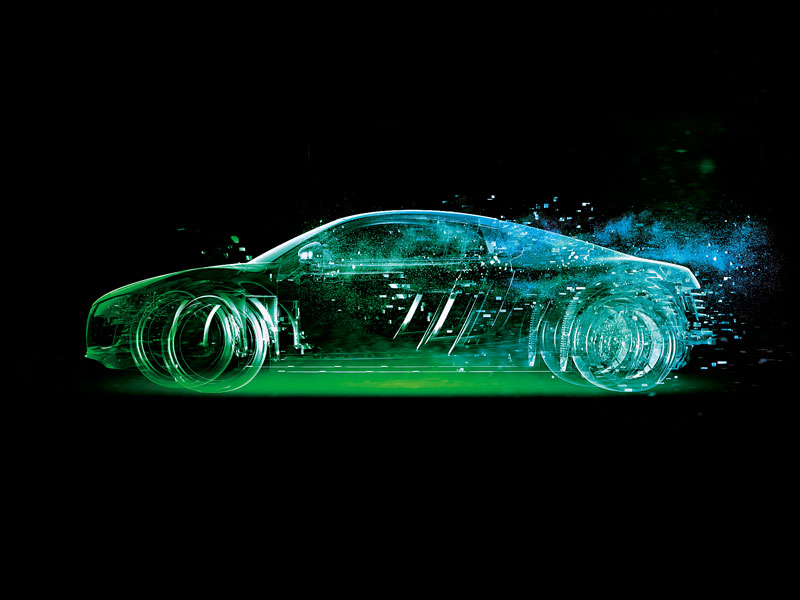Electric car market races to meet demand
Scandal, environmental consciousness and innovation are accelerating the car industry’s transformation, directing it towards electric vehicles

By 2025, 14 percent of all cars sold around the world will be electric, according to the financial services company UBS
Plugging your car into a power socket next to your mobile phone is a novel concept, but in the not-too-distant future, it may well be the new normal. The shift towards electric cars is gaining traction at a significant rate and, consequently, the massive fossil-powered car industry is experiencing a decline in sales.
This shift away from traditionally powered cars has been pushed by the outrage sparked by Volkswagen’s emissions scandal in 2015, when it was revealed that the company had been cheating emission tests. Another factor boosting the trend is the increasing urgency of tackling climate change. Governments globally are reacting to the growing threat of climate change by clamping down on the emissions produced by vehicles.
The emissions issue
The group of countries planning to phase out fossil fuel cars is growing. Among them, Norway plans to reach a zero-emission vehicle market by 2025, while the Netherlands is also in discussions to implement a similar policy ahead of others in Europe. Equally, in India, the government is seeking to only sell electric cars by 2030.
Transformation seems to be around the corner. In recent months, the UK and France, the second and third biggest economies in Europe, set 2040 as their own target for a petrol and diesel car ban. One of the reasons for this urgency comes from research by the British Royal College of Paediatrics and Child Health and the Royal College of Physicians, which has linked 40,000 deaths per year to air pollution. This is largely attributed to the 97 percent share that diesel and petrol vehicles have of total car sales.
France’s deadline for banning high-emission vehicles was set shortly after President Donald Trump confirmed the US’ withdrawal from the Paris Agreement
France’s decision came at a significant time. The deadline for banning high-emission vehicles was set shortly after President Donald Trump confirmed the US’ withdrawal from the Paris Agreement, which was signed by 195 countries in 2016.
The emissions issue has also grown bigger in Germany. As Chancellor Angela Merkel pursued a fourth term in office, she was accused of being soft on the car sector. She agreed that other countries’ approach to the issue was right. Without naming a year, Merkel added that a general changeover was “structurally possible” in Germany. Nevertheless, she has stopped local administrations from implementing driving bans, such as the one applied in Oslo.
The gloomy horizon for gasoline-powered cars got even darker after China announced it is preparing to end the sale of petrol and diesel vehicles in the largest car market worldwide. In 2016, Chinese vehicle sales totalled 24 million – 10 times the annual output in France, to mention just one example. Meanwhile, the US auto industry is also evolving towards electric cars, with low-emission vehicle sales growing by 32 percent on average since 2013.
Battery power
Carmakers are rushing for a slice of the burgeoning market, in particular trying to catch up with Tesla. Although electric cars are not a new invention – the first was built in 1884 – Tesla is helping to bring them to the mainstream. By 2025, 14 percent of all cars sold around the world will be electric, according to the financial services company UBS. This would mean a huge leap from the 0.86 percent of global production they are set to reach this year.
Moving forward, carmakers need to be supported by adequate supply. In anticipation of this, Elon Musk opened a gigafactory in Nevada with a planned annual lithium-ion battery production capacity of 35GWh, to back a production goal of 500,000 cars a year. A similar plant will be built in Germany by a consortium of 17 companies, which is backed by public support. In the same country, Daimler is disbursing €500m ($595m) for its own battery factory.
These developments are essential if the electric car market is to cope with steeply rising demand. Batteries are a significant cost for the new generation of cars, despite the fact prices have dropped by half since 2014. According to UBS, if manufacturers manage the price of batteries properly, electric vehicles could reach the same prices as combustion engine cars as soon as next year.
Electric cars were the stars at the Frankfurt Motor Show in September, when a number of companies revealed their latest strategies. Volkswagen, for example, announced it will invest €70bn ($83.3bn) to develop batteries and new models. But the industry’s concerns also came to light during the show. A Mercedes Benz’s executive measured the challenge: some new cars, he said, would only give the company “half of the margin of the vehicles they replace”. With deadlines established, the industry has a long way to go to in the race to create the perfect substitute for fossil fuel-powered cars.













